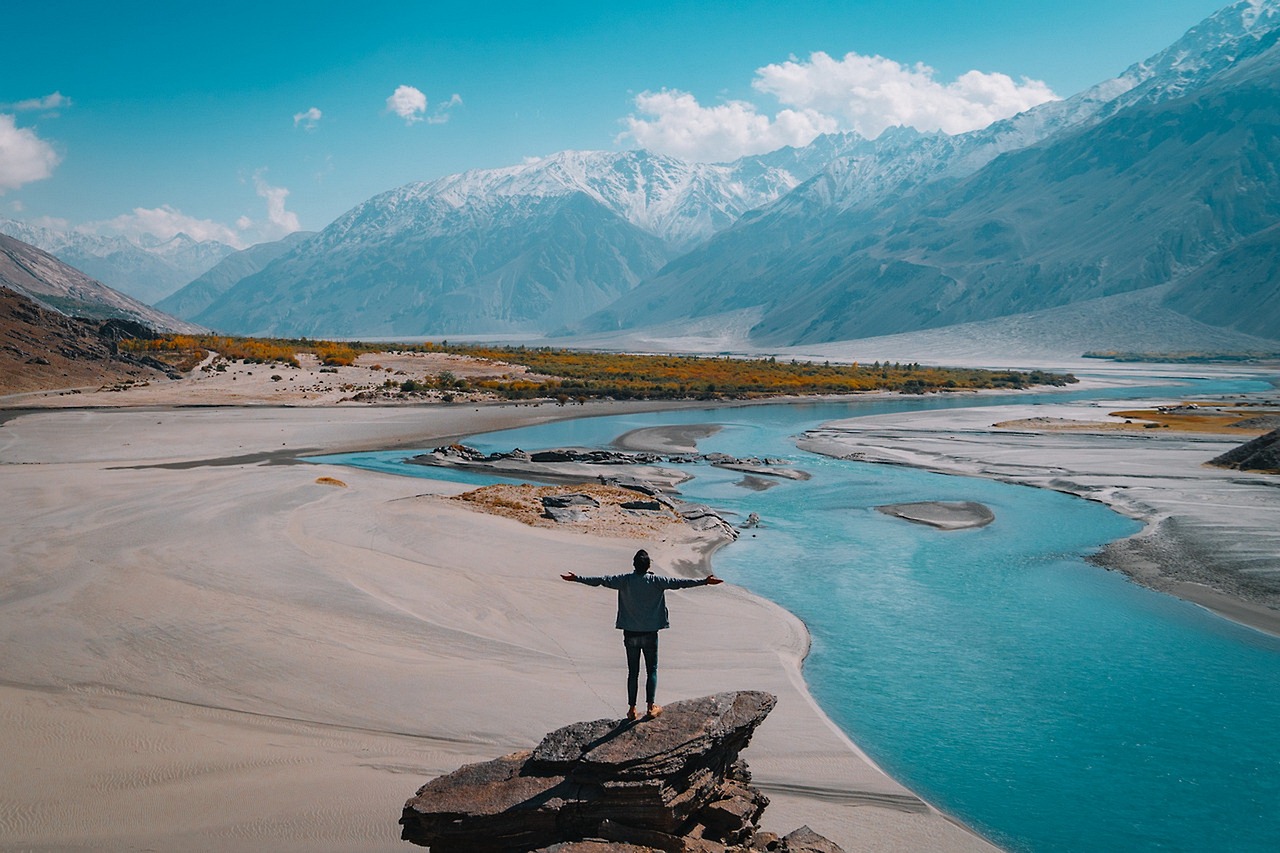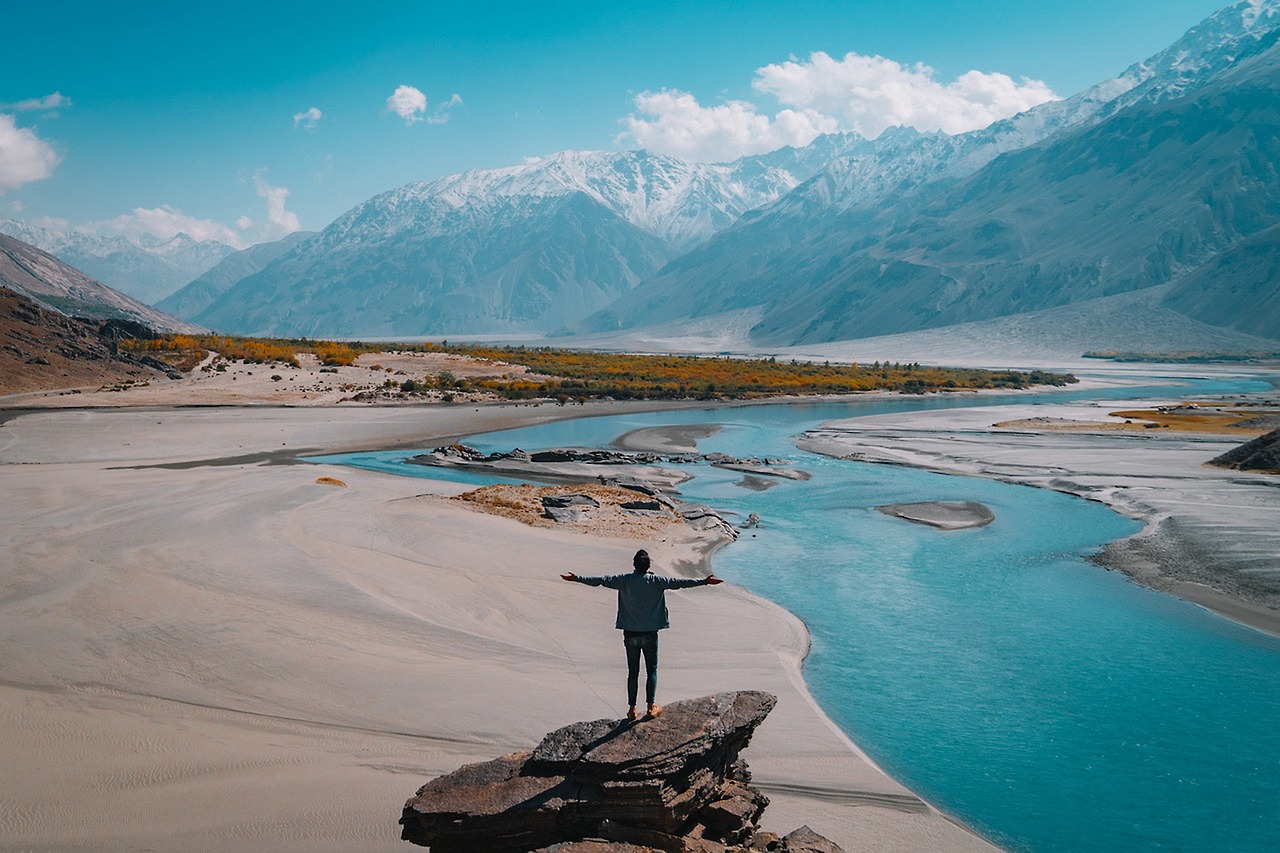The Impact of Economic Changes on Global Travel Trends
Global travel trends are constantly evolving, shaped by a myriad of factors, with economic changes playing a significant role in steering the course of the travel industry. These shifts in the economy have a profound impact on how people choose to explore the world, influencing everything from destination preferences to travel behaviors and spending habits.
As economies experience fluctuations, one noticeable trend is the rise of budget travel. Travelers are increasingly opting for more wallet-friendly options, leading to a surge in budget travel choices such as hostel stays, low-cost airlines, and affordable accommodations. The quest for cost-effective travel experiences has become a defining feature of the modern travel landscape.
On the other end of the spectrum, luxury travelers are also adapting to economic changes by seeking exclusive experiences that offer value for money. High-end travelers are now prioritizing personalized services, luxury accommodations, and unique experiences that cater to their discerning tastes while still being mindful of economic shifts.
Business travel is not immune to the influence of economic fluctuations. Corporate travel decisions are directly impacted by changing economic conditions, leading to trends such as cost-saving measures, virtual meetings, flexible booking policies, and a focus on essential trips. The business travel sector is constantly adjusting to ensure efficiency and adaptability in the face of economic challenges.
Sustainable travel practices have gained prominence as economic conditions evolve. Travelers are increasingly supporting eco-friendly accommodations, responsible tourism initiatives, and conservation efforts. The emphasis on sustainability in travel reflects a growing awareness of the environmental impact of tourism and a desire to travel responsibly.
Technological advancements in the travel industry are also driven by economic changes. Contactless payments, digital nomadism, virtual tours, and AI-powered travel planning tools are just some of the trends that have emerged as a result of shifting economic landscapes. Technology integration continues to revolutionize the way people experience and engage with travel.
Destination preferences are not static and are heavily influenced by changing economic conditions. Travelers are now gravitating towards off-the-beaten-path locations, promoting domestic tourism, and participating in cultural exchange programs. The evolving economic landscape is reshaping the way people choose their travel destinations, seeking unique and authentic experiences.
Wellness and health tourism have witnessed a surge in popularity as economic fluctuations impact travel trends. Travelers are prioritizing wellness retreats, medical tourism, outdoor activities, and mental well-being initiatives. The focus on health and wellness reflects a growing awareness of the importance of holistic well-being in travel experiences.
In response to economic challenges, collaborative travel models have emerged as a trend. Shared accommodations, group tours, community-based tourism, and peer-to-peer travel experiences are gaining traction as travelers seek cost-effective and community-oriented travel options. Collaborative travel fosters a sense of connection and shared experiences among travelers.
Cultural and educational experiences are also influenced by economic changes, shaping travel trends focused on heritage tourism, language immersion programs, volunteer travel, and experiential learning opportunities. Travelers are increasingly seeking meaningful and educational experiences that allow them to engage with different cultures and expand their knowledge.
Overall, the impact of economic changes on global travel trends is profound and multifaceted, shaping the way people travel, the destinations they choose, and the experiences they seek. As economies continue to evolve, the travel industry will undoubtedly adapt and innovate to meet the changing needs and preferences of travelers worldwide.

1. Rise of Budget Travel
Exploring how shifts in the economy influence the way people travel worldwide, from changing destination preferences to altering travel behaviors and spending patterns.
Amid economic fluctuations, the rise of budget travel has become a prominent trend in the travel industry. Travelers are increasingly opting for budget-friendly options to make the most of their journeys without breaking the bank. This shift has led to a surge in budget travel trends, including hostel stays, low-cost airlines, and affordable accommodations that cater to the savvy traveler looking for cost-effective solutions.
With the increasing popularity of budget travel, travelers are seeking ways to stretch their travel budget while still experiencing new destinations. This trend has reshaped the way people approach travel, emphasizing the value of experiences over extravagant expenses. Budget travelers are embracing the idea that exploring the world can be affordable and fulfilling, sparking a new wave of exploration among those looking to travel smartly.
Furthermore, budget travel has opened up opportunities for travelers to immerse themselves in diverse cultures, connect with locals, and create unforgettable memories without the hefty price tag. As economic changes continue to influence travel decisions, the rise of budget travel is set to redefine the way people experience the world, making travel more accessible and inclusive for all.

2. Luxury Travel Adaptations
When it comes to luxury travel adaptations in response to economic changes, travelers at the high end of the spectrum are known for their ability to adjust their preferences accordingly. These discerning individuals seek exclusive experiences that offer a sense of uniqueness and personalization. In the face of fluctuating economies, luxury travelers are increasingly looking for services and accommodations that provide exceptional value for the premium they pay.
One notable trend in luxury travel adaptations is the emphasis on personalized services. Travelers are now seeking bespoke experiences that cater to their individual preferences and desires. Whether it's a private villa with personalized butler service or a tailored itinerary crafted to their specific interests, luxury travelers are willing to invest in experiences that go above and beyond the ordinary.
Moreover, luxury accommodations have evolved to meet the changing demands of affluent travelers. From opulent boutique hotels to extravagant resorts, the focus is on providing a level of luxury that justifies the cost. High-end travelers are no longer satisfied with standard amenities; they crave unique offerings such as Michelin-starred dining experiences, exclusive access to cultural events, and spa treatments that redefine relaxation.
Another aspect of luxury travel adaptations is the increasing demand for experiential value. Luxury travelers are not just looking for material opulence; they seek experiences that enrich their lives and create lasting memories. This shift has led to a rise in unique travel experiences such as private yacht charters, luxury wilderness retreats, and immersive cultural immersions that offer a deeper connection to the destination.
In conclusion, luxury travel adaptations in the face of economic changes reflect a desire for exclusivity, personalization, and experiential value. As the global economy continues to evolve, luxury travelers are redefining what it means to indulge in luxury travel, seeking experiences that are not only luxurious but also meaningful and transformative.

3. Impact on Business Travel
Exploring how shifts in the economy influence the way people travel worldwide, from changing destination preferences to altering travel behaviors and spending patterns.
Economic changes have a profound impact on the realm of business travel, reshaping the way companies approach their corporate travel strategies. As financial landscapes fluctuate, organizations are compelled to reevaluate their travel policies and practices to adapt to the evolving economic conditions.
One significant effect of economic shifts on business travel is the implementation of cost-saving measures. Companies are increasingly conscious of their travel expenses, leading them to seek more economical options without compromising the quality of their business trips. This has resulted in a rise in the utilization of budget-friendly airlines, discounted accommodation deals, and strategic booking approaches to optimize travel budgets.
Moreover, the emergence of virtual meetings as a viable alternative to physical business travel has become more prevalent in response to economic challenges. With the advancement of technology, organizations are leveraging video conferencing tools and virtual communication platforms to conduct meetings and conferences remotely, reducing the need for extensive business travel.
Flexible booking policies have also become a key trend in business travel, allowing companies to adjust their travel arrangements in accordance with fluctuating economic conditions. The ability to modify or cancel bookings with minimal financial repercussions provides organizations with the flexibility to adapt to sudden changes in the business landscape.
Essential trips have taken precedence in corporate travel decision-making, with companies prioritizing travel for critical meetings, conferences, and business engagements. This selective approach ensures that resources are allocated efficiently, focusing on trips that directly contribute to the company's objectives and bottom line.
Overall, the impact of economic changes on business travel has prompted a strategic reassessment of travel practices, encouraging organizations to streamline their operations, embrace cost-effective solutions, and prioritize essential travel activities to navigate the dynamic economic environment effectively.
- How do economic changes influence travel trends?
Economic fluctuations can impact travel trends by altering consumer preferences, spending habits, and destination choices based on financial considerations. - What are some examples of collaborative travel models?
Collaborative travel models include shared accommodations, group tours, community-based tourism, and peer-to-peer travel experiences, emphasizing shared experiences and cost-sharing. - Why is sustainable travel gaining prominence?
Sustainable travel is becoming increasingly popular due to growing environmental awareness, with travelers supporting eco-friendly practices and responsible tourism initiatives to minimize negative impacts on the planet.

4. Sustainable Travel Practices
Exploring how shifts in the economy influence the way people travel worldwide, from changing destination preferences to altering travel behaviors and spending patterns.
As economic conditions evolve, sustainable travel becomes a prominent trend in the global tourism landscape. Travelers are increasingly conscious of their environmental impact and seek eco-friendly options that support responsible tourism initiatives and conservation efforts.
One key aspect of sustainable travel practices is the preference for eco-friendly accommodations. Travelers are choosing hotels, resorts, and lodges that prioritize sustainability, such as using renewable energy sources, reducing single-use plastics, and implementing water conservation measures.
Moreover, responsible tourism initiatives are gaining momentum as travelers support local communities and cultural preservation. Engaging in community-based tourism activities, visiting indigenous heritage sites, and participating in conservation projects are becoming popular ways for travelers to contribute positively to the destinations they visit.
Another significant trend in sustainable travel is the promotion of ethical wildlife encounters and nature-based experiences. Travelers are increasingly seeking opportunities to engage with wildlife in a responsible manner, supporting sanctuaries, wildlife rehabilitation centers, and eco-conscious tour operators.
Furthermore, sustainable travel practices extend to transportation choices, with a growing emphasis on reducing carbon footprints. Travelers are opting for eco-friendly modes of transportation such as trains, buses, and electric vehicles, as well as supporting carbon offset programs to mitigate the environmental impact of their travel.
In conclusion, sustainable travel practices are reshaping the global tourism industry, with travelers prioritizing environmental conservation, community engagement, and ethical tourism experiences. By embracing sustainable travel options, individuals can contribute to a more responsible and environmentally conscious approach to exploring the world.

5. Technology Integration in Travel
Exploring how shifts in the economy influence the way people travel worldwide, from changing destination preferences to altering travel behaviors and spending patterns.
Technology integration in the travel industry is rapidly evolving in response to economic changes, revolutionizing the way people plan and experience their journeys. With the rise of digital innovation, travelers now have access to a plethora of tools and services that enhance their travel experiences.
One significant trend driven by economic shifts is the adoption of contactless payments, providing a convenient and secure way for travelers to make transactions during their trips. This advancement not only streamlines the payment process but also promotes efficiency and safety in financial transactions.
Moreover, the concept of digital nomadism has gained traction as a result of economic fluctuations, allowing individuals to work remotely while exploring various destinations. This trend blurs the lines between work and travel, offering flexibility and freedom to those seeking a balance between professional responsibilities and wanderlust.
Virtual tours have also become increasingly popular in the travel industry, offering immersive experiences that allow travelers to explore destinations from the comfort of their homes. Economic changes have accelerated the development of virtual tour technologies, providing an alternative way for people to satisfy their travel cravings when physical travel may not be feasible.
Additionally, artificial intelligence (AI) has transformed travel planning by offering personalized recommendations, itinerary suggestions, and real-time assistance to travelers. AI-powered travel planning tools analyze data and preferences to create tailored travel experiences, catering to the individual needs and interests of each traveler.
As economic conditions continue to shape the travel landscape, technology integration remains a driving force behind the evolution of travel trends, enhancing convenience, personalization, and efficiency in the way people explore the world.

6. Shifts in Destination Preferences
Exploring how shifts in the economy influence the way people travel worldwide, from changing destination preferences to altering travel behaviors and spending patterns.
When economic landscapes evolve, travelers' destination choices also undergo significant transformations. These changes lead to emerging trends that redefine the travel experience for individuals seeking unique and enriching adventures. The impact of economic fluctuations can be observed in various aspects of destination preferences, shaping the way people explore the world and interact with different cultures.
One notable trend that emerges from economic changes is the rise of off-the-beaten-path locations as preferred travel destinations. Travelers are increasingly seeking unconventional and lesser-known places to escape the crowds and discover hidden gems that offer authentic experiences. This shift reflects a desire for exploration beyond traditional tourist hotspots, allowing individuals to immerse themselves in new environments and cultures.
Moreover, domestic tourism promotion gains momentum as economic conditions influence travelers to explore their own countries more extensively. With uncertainties in international travel and a focus on supporting local economies, many people are rediscovering the beauty and diversity of their homeland. This trend not only boosts domestic tourism but also highlights the significance of appreciating and preserving the cultural heritage and natural wonders within one's own borders.
Cultural exchange programs also experience a surge in popularity as a result of changing economic dynamics. Travelers are increasingly drawn to opportunities that facilitate meaningful interactions with local communities, allowing for a deeper understanding of different traditions, customs, and lifestyles. These programs promote mutual understanding and respect between individuals from diverse backgrounds, fostering a sense of global unity and interconnectedness.
In summary, the shifts in destination preferences driven by economic changes offer travelers a chance to explore new horizons, support local communities, and engage in transformative cultural experiences. By embracing these evolving trends, individuals can embark on journeys that not only broaden their perspectives but also contribute to sustainable tourism practices and positive social impact.

7. Wellness and Health Tourism
When economic conditions experience turbulence, the world of travel undergoes a transformation, impacting various aspects of the industry. One significant area affected by economic changes is wellness and health tourism. As financial landscapes shift, individuals begin to prioritize their well-being, leading to a surge in wellness-focused travel trends.
Travelers are increasingly seeking destinations and experiences that promote health and wellness. This trend has given rise to a demand for wellness retreats, where individuals can rejuvenate their mind, body, and soul in tranquil settings conducive to relaxation and self-care. These retreats offer a sanctuary away from the stresses of daily life, allowing guests to focus on their well-being through activities like yoga, meditation, spa treatments, and healthy cuisine.
Moreover, medical tourism has become a prominent aspect of wellness and health tourism, with individuals traveling to other countries to access high-quality healthcare services at competitive prices. This trend not only allows individuals to address medical needs but also provides an opportunity to explore new destinations and cultures while receiving treatment.
Outdoor activities play a crucial role in wellness and health tourism, as travelers seek to engage in physical pursuits that promote fitness and mental well-being. Hiking, cycling, water sports, and nature walks are popular activities among wellness travelers, offering a blend of adventure and relaxation in natural surroundings.
Mental well-being initiatives have also gained traction in the travel industry, with an increasing focus on mindfulness, stress management, and mental health support during trips. Destinations and accommodations are incorporating mental wellness programs and services to cater to the holistic needs of travelers, ensuring a well-rounded and enriching experience.

8. Collaborative Travel Models
Exploring how shifts in the economy influence the way people travel worldwide, from changing destination preferences to altering travel behaviors and spending patterns.
Collaborative travel models have become increasingly popular in response to economic challenges, fostering a sense of community and shared experiences among travelers. These innovative models promote shared accommodations, where individuals can stay in local homes or apartments, providing a more authentic and immersive travel experience. Group tours have also gained traction, allowing travelers to explore destinations together, share costs, and engage in meaningful cultural exchanges. Additionally, community-based tourism initiatives have emerged, encouraging visitors to support local economies and engage with communities in a sustainable way. Peer-to-peer travel experiences, facilitated by online platforms, enable travelers to connect with like-minded individuals, share resources, and create memorable journeys together.
Q: How do economic changes impact budget travel trends?
A: Economic fluctuations often lead to an increase in budget travel as travelers seek cost-effective options to explore new destinations. This can result in a rise in hostel stays, low-cost airline bookings, and a preference for affordable accommodations.
Q: What role does technology play in shaping travel trends?
A: Technology integration in the travel industry is influenced by economic changes, driving advancements such as contactless payments, virtual tours, and AI-powered travel planning tools. These innovations cater to changing consumer preferences and enhance the overall travel experience.
Q: How can travelers contribute to sustainable tourism practices?
A: Travelers can support sustainable tourism by choosing eco-friendly accommodations, participating in responsible tourism initiatives, and engaging in conservation efforts. By making conscious choices during their travels, individuals can help protect the environment and support local communities.
Q: What are the benefits of cultural and educational travel experiences?
A: Cultural and educational travel experiences offer unique opportunities for personal growth, cross-cultural understanding, and immersive learning. By engaging in heritage tourism, language immersion programs, volunteer travel, and experiential learning activities, travelers can broaden their perspectives and gain valuable insights into different cultures.

9. Cultural and Educational Experiences
Cultural and educational experiences have become increasingly popular as travelers seek more meaningful interactions and insights during their journeys. In today's dynamic economic landscape, the demand for immersive cultural experiences and educational opportunities has grown significantly. Travelers are looking beyond traditional tourist attractions to engage with local communities, learn about indigenous cultures, and participate in educational programs that offer a deeper understanding of the destinations they visit.
One emerging trend in cultural travel is heritage tourism, where travelers explore historical sites, museums, and landmarks to connect with the heritage and traditions of a place. This trend reflects a desire for authenticity and a genuine appreciation of the local culture. Additionally, language immersion programs have gained traction, allowing travelers to learn a new language while experiencing the daily life of a different culture. These programs offer a unique blend of education and travel, fostering cross-cultural communication and understanding.
Volunteer travel is another significant trend in cultural and educational experiences, where travelers contribute their time and skills to community projects or conservation efforts. This form of travel allows individuals to make a positive impact while gaining insights into local challenges and lifestyles. Moreover, experiential learning opportunities have become popular among travelers seeking hands-on experiences in fields such as cooking, crafts, traditional arts, and sustainable practices. These experiences provide a deeper connection to the destination and its cultural heritage.
By engaging in cultural and educational experiences, travelers not only enrich their own journeys but also support local communities and preserve cultural traditions. These immersive experiences foster mutual respect, cultural exchange, and lifelong learning, creating lasting memories and meaningful connections that transcend economic fluctuations. In a world where travel is evolving rapidly, cultural and educational experiences offer a timeless way to explore, learn, and grow.
Frequently Asked Questions
- What are the key factors influencing global travel trends?
The key factors influencing global travel trends include economic changes, technological advancements, sustainability initiatives, and shifting consumer preferences.
- How do economic changes impact budget travel?
Economic changes often lead to a rise in budget travel as travelers seek more affordable options such as hostel stays, low-cost airlines, and budget accommodations to save money while exploring new destinations.
- What is the significance of sustainable travel practices?
Sustainable travel practices play a crucial role in minimizing the environmental impact of tourism, promoting responsible travel behaviors, and supporting eco-friendly initiatives to preserve natural resources for future generations.
- How does technology integration influence the travel industry?
Technology integration in the travel industry enhances customer experiences by offering contactless payments, digital nomadism opportunities, virtual tours, and AI-powered tools for efficient travel planning and seamless navigation.
- Why are collaborative travel models gaining popularity?
Collaborative travel models are gaining popularity due to economic challenges, fostering shared accommodations, group tours, community-based tourism, and peer-to-peer experiences that promote cultural exchange and social connections among travelers.



















